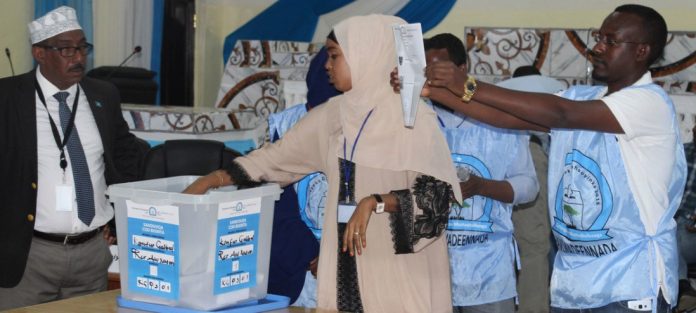Facebook Twitter (X) Instagram Somali Magazine - People's Magazine
In a historic move, Somalia has endorsed legislation that paves the way for the implementation of a one-person, one-vote electoral system, a significant departure from the complex clan-based indirect voting system that has dominated the country’s political landscape since 1969.
A Move Towards Universal Suffrage
The new legislation, approved unanimously by the cabinet under Prime Minister Hamza Abdi Barre, seeks to establish universal suffrage, marking a critical step forward for the war-torn nation that has been grappling with decades of conflict, insurgency, and political instability. The move was described as “historic” by Somali government spokesman Farhan Jimale, who emphasized that the law would enable every Somali citizen to exercise their constitutional right to directly vote for their leaders.
Somalia Cabinet Attempts to Replace the Clan-Based System
The proposed law, which follows the recommendations of the National Consultative Forum on political reforms, will need to be approved by Somalia’s parliament before it can be signed into law by President Hassan Sheikh Mohamud. If enacted, it would replace the current system where state legislatures and clan delegates select lawmakers who, in turn, elect the president. This clan-based system has often led to protracted political wrangling and has been exploited by the Al-Shabaab militant group, which continues to pose a serious threat to the country’s stability.
Somalia Cabinet Faces Challenges from Puntland
The one-person, one-vote plan was initially unveiled in 2023 with local elections expected in June 2024. However, the implementation faced challenges, particularly from the semi-autonomous state of Puntland, which has historically been at odds with the central government. Puntland held direct local polls in May 2023 but reversed its decision to continue using the system for subsequent elections, citing concerns over federal authority and local autonomy. In March 2024, Puntland further escalated tensions by announcing that it would no longer recognize Somalia’s federal institutions following the parliamentary backing of the one-person, one-vote system.
As of now, there has been no official response from Puntland regarding the cabinet’s latest endorsement of the legislation.
Security and the Role of the African Union
The move also comes at a critical time as Somalia prepares for the transition of security responsibilities from the African Union Mission in Somalia (AMISOM) to its own national forces. The new African Union Support and Stabilisation Mission in Somalia (AUSSOM), with contributions from Egypt and Djibouti, is expected to play a key role in this transition.
A Step Towards Stability and Democracy
The push for universal suffrage reflects a broader effort by the Somali government to stabilize the country and build a more inclusive and democratic political system, despite ongoing challenges from insurgent groups and internal divisions. The proposed legislation represents a significant step towards achieving these goals, although its success will depend on gaining broad support from all federal states and ensuring the security needed to hold nationwide elections.

